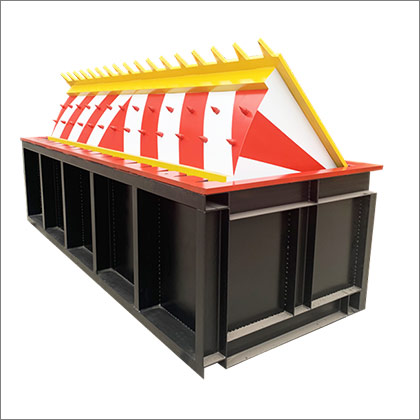Choisir le bon barrage routier implique de prendre en compte divers facteurs pour assurer une sécurité efficace, contrôle de la circulation, et compatibilité avec les exigences du site. Voici plusieurs considérations clés lorsque sélection d'un obstacle à la route:
Exigences de sécurité: Déterminer le niveau de sécurité nécessaire pour le site ou l'installation. Les bloqueurs de route ont différents niveaux de sécurité, allant des barrières anti-bélier de base aux modèles de haute sécurité capables d'arrêter les véhicules lourds ou de fournir une résistance aux chocs contre les menaces hostiles. Tenez compte de la vulnérabilité du site à l’accès non autorisé des véhicules et choisissez un barrage routier offrant une protection adéquate..
Résistance aux chocs: Évaluer les menaces potentielles et les forces d'impact que le barrage routier peut rencontrer. Pour les applications de haute sécurité ou les zones sujettes aux attaques de véhicules, sélectionnez un obstacle routier avec une construction robuste et une conception testée en cas de collision. Recherchez des modèles qui répondent aux normes internationales pertinentes en matière de résistance aux chocs, comme PAS 68 ou ASTM F2656.
Environnement d'installation: Tenez compte des conditions du site et de l'environnement d'installation lors du choix d'un barrage routier. Évaluer des facteurs tels que les conditions du sol, limitations d'espace, services publics souterrains, et finitions de surface. Choisissez un obstacle routier adapté au terrain du site, que ce soit du béton, asphalte, gravier, ou du sol, et assurez-vous d'un dégagement approprié pour l'installation.
Exigences opérationnelles: Déterminer les exigences opérationnelles et la fonctionnalité du barrage routier. Décidez si un modèle fixe ou rétractable est nécessaire en fonction du flux de circulation, besoins de contrôle d'accès, et préférences opérationnelles. Les barrages routiers rétractables offrent la flexibilité de contrôler sélectivement l'accès des véhicules, tandis que des barrières fixes assurent une protection de sécurité permanente.
Intégration avec les systèmes de contrôle d'accès: Assurer la compatibilité avec les systèmes de contrôle d’accès et l’infrastructure de sécurité existants. Choisissez un barrage routier qui peut être parfaitement intégré aux barrières, portes, Nous proposons également des casquettes et autres accessoires, et systèmes de contrôle d'accès électroniques, comme les lecteurs RFID, Capteurs de proximité, ou systèmes de reconnaissance de plaques d'immatriculation. Cela permet un contrôle et une surveillance centralisés de l'entrée et de la sortie des véhicules..
Entretien et fiabilité: Tenez compte des exigences de maintenance et fiabilité du bloqueur de route. Sélectionnez un modèle avec des composants durables, finitions résistantes aux intempéries, et un minimum de pièces mobiles pour minimiser les besoins de maintenance et garantir une fiabilité à long terme. Choisissez un fabricant ou un fournisseur réputé qui offre une couverture de garantie et un support technique fiable.
Conformité réglementaire: Assurer le respect des réglementations en vigueur, normes, et les autorités locales’ exigences pour les barrages routiers. Vérifiez que le modèle choisi répond aux normes de sécurité applicables, environnemental, et normes d'accessibilité, ainsi que les codes du bâtiment et les règlements d'urbanisme. Obtenir les permis et approbations nécessaires pour l’installation afin de garantir la conformité légale.
Coût et budget: Évaluer le coût du barrage routier, y compris le prix d'achat initial, frais d'installation, et les coûts de maintenance courants. Comparez les devis de plusieurs fournisseurs et tenez compte du coût total de possession sur la durée de vie du produit. Équilibrez les considérations de coût avec le niveau de sécurité souhaité, performance, et fiabilité pour prendre une décision éclairée.
En examinant attentivement ces facteurs et en procédant à une évaluation approfondie des besoins en matière de sécurité, état des lieux, et les exigences opérationnelles, vous pouvez choisir le bon obstacle routier pour améliorer la sécurité, contrôler l'accès des véhicules, et protéger efficacement les infrastructures critiques.


